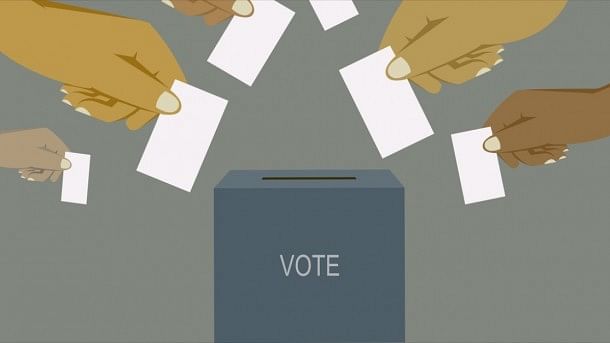
Representative image for voting.
Credit: iStock Images
In the run-up to the Assembly election in Maharashtra, the ruling BJP-led Mahayuti alliance has unveiled a series of populist welfare schemes, promised economic security, and maintained a steady line of attack on the Congress. In contrast, the Congress-led Maha Vikas Aghadi (MVA) alliance has emphasised on social justice, promised welfare measures for women and the poor, and subsidies to the farming community to tackle the agrarian crisis. Issues such as the construction of the Ram Mandir and the abrogation of Article 370 have dominated the Mahayuti discourse. Interestingly, issues central to the state during the 2024 general election have been noticeably absent from the mainstream political campaigns.
MVA outperformed Mahayuti in the 2024 Lok Sabha election, largely due to its populist campaign which capitalised on the political crises triggered by defections of key leaders such as Ajit Pawar and Eknath Shinde. The Congress positioned itself as the defender of constitutional values and social justice, targeting the BJP for what it portrayed as undemocratic functioning. Additionally, the issue of Maratha reservation, led by activist Manoj Jarange Patil, raised difficult questions to the Shinde-led government and influenced the political dynamics. However, in the current election campaigns, these concerns have been relegated while financial assistance schemes for women have taken centrestage. It appears that issues once seen as significant have also been sidelined in the poll manifestos.
For a long time, the economic development of the Mumbai-Thane region has dominated the political discourse in Maharashtra. With the BJP’s rise to power at the Centre, concerns have emerged about the slow growth of Mumbai’s service and manufacturing industries, as many development projects are now shifting to Gujarat and the South Indian cities. There are even fears that the Hindi film industry could relocate to Noida, Uttar Pradesh. Allegations persist that the region is suffering from overpopulation, poverty, and rising unemployment. Municipal elections have been stalled for over a year, delaying solutions to issues pertaining to sanitation, infrastructure, and basic civic amenities. Yet, these growing urban crises have not figured prominently in the mainstream political debate.
Secondly, the mounting agrarian crisis and the changing class structures within farming communities, particularly among the Marathas, have not emerged as central issues in the two manifestos. The challenges of rising bank debt, farmer suicides, commercialisation of agricultural land, and the lack of employment opportunities for rural youth have fueled the Maratha reservation movement. Although the government has responded with some concessions, it has failed to address how neoliberal economic policies have exacerbated the plight of farming communities, particularly small landholders like Marathas and Kunbis. To alleviate the economic burdens on these groups, substantial policy reforms are needed; yet, the current political discourse seems distanced from these issues.
Distanced from reality
Thirdly, while both the alliances present themselves as defenders of social justice, the manifestos largely overlook the concerns of the most vulnerable social groups – namely Dalits and Adivasis who make up 23% of the state’s population and are influential in regions like Vidharbha and Mumbai-Thane. In the recent Lok Sabha elections, these groups played a crucial role in the MVA’s success, challenging the BJP’s rhetoric of an inclusive Hindutva. However, the manifestos barely address their demands for the effective implementation of social justice policies, protection against caste discrimination and atrocities, or an increase in their participation in political and economic institutions. Similarly, Muslims, another significant minority, are notably marginalised in the political discourse.
Maharashtra’s political landscape is increasingly moving away from vital deliberations on policy reforms that could foster the welfare and empowerment of its people. Instead, political leaders seem more focused on petty, personal attacks against their opponents and have failed to present a higher standard of political action that advocates for ethical and inclusive development. This environment which shies away from substantive discussions on economic empowerment, social security, and justice, allows populism and communal rhetoric to take centrestage.
The electoral campaigns of both alliances predominantly revolve around emotive issues such as Marathi pride, welfare schemes, and the need for strong leadership. The BJP-led alliance further drives the political debate toward communal polarisation with emotive slogans. Such hyper-populist campaigns may garner short-term attention but divert focus from the real problems faced by farming communities, Dalits, Adivasis, and the poor. Moreover, civil society groups, intellectuals, and Marathi media outlets seem disengaged from raising critical issues like urban underdevelopment and social insecurities faced by vulnerable groups.
The current election campaigns and manifestos appear disconnected from the realities of the poor and marginalised communities, offering little guidance for civil society to engage meaningfully with the political process. This passivity, coupled with the absence of people-centred issues, has reduced electoral democracy to little more than a procedural routine.
(The writer teaches at the Centre for Political Studies, Jawaharlal Nehru University)